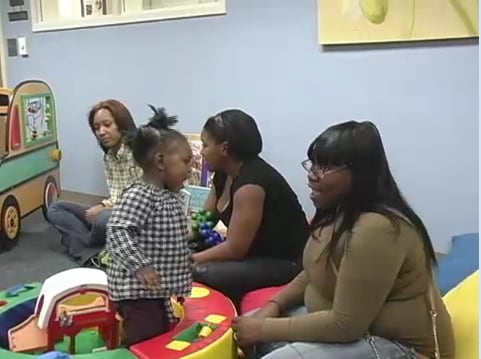Child Development Research

CDC conducts research to learn more about healthy child development and to better understand certain conditions that affect children. This information is used to
- Create prevention, health education, and intervention programs,
- Help communities plan for services for children and their families, and
- Determine what additional research studies are needed.
This page provides you with an overview of current child development research activities.
Investing in our children is investing in our future. Early childhood investment can reduce costs to society, overall. This includes tangible costs, such as special education, foster care, welfare, medical care, law enforcement, social security, and social services, and intangible costs, such as physical and emotional pain experienced by children with developmental delays and their families.
Children’s Mental, Emotional, and Behavioral Health
CDC is working with other agencies to collect and monitor information about childhood mental disorders and to better understand and promote children’s mental, emotional, and behavioral health. Childhood mental disorders—for example, attention-deficit/hyperactivity disorder (ADHD), Tourette syndrome, behavior disorders, mood and anxiety disorders, autism spectrum disorder, or substance use disorders—affect many children and families. Because of the impact on children, families, and communities, children’s mental disorders are an important public health issue in the United States.
Read more about children’s mental, emotional, and behavioral health.
Legacy for Children™

See Legacy for Children™ in action, highlighted in the Head Start Best Practices for Family and Community Engagement Video Series “Bringing Families Together: Building Community Video”
The Legacy for Children™ (Legacy) intervention program, designed to prevent developmental delays among children living in poverty, focuses on the role of parents and ways that they can positively influence their children. CDC developed the Legacy model, which was then adapted to provide intervention at two research sites in Miami, Florida and Los Angeles, California. Legacy activities were designed to build on sensitive and responsive parenting skills, enhance parent-child interactions, and promote a sense of community. Legacy’s goal is to have children grow up emotionally healthy and ready to be productive members of society.
The Legacy program was evaluated in a research study held in Los Angeles and Miami, targeting low-income mothers and their children. The program enrolled women before birth in Los Angeles and at birth in Miami, and lasted until children were 3 or 5 years of age, respectively. Mothers met weekly in parenting groups. Guided by a group leader, mothers talked about child development, supported each other, learned different parenting skills, and practiced them with their child. Both Legacy sites piloted the program for a period of time, followed by a main study phase in order to develop and refine how the Legacy curricula were used.
Results of the Legacy intervention study showed an overall positive effect on children living in poverty. There were improvements in the child’s thinking, learning, and behavior as well as the interaction between the mother and child.
Read more about the Legacy for Children™ program and implementation.
Learning About Specific Conditions
CDC conducts research and tracking of certain birth defects, disabilities, and blood disorders that affect children. Click on the following links to learn more:
